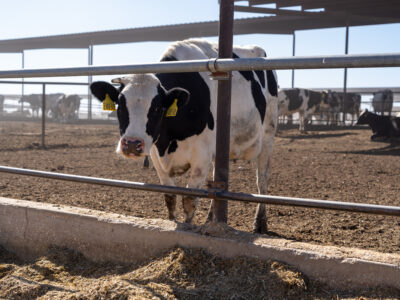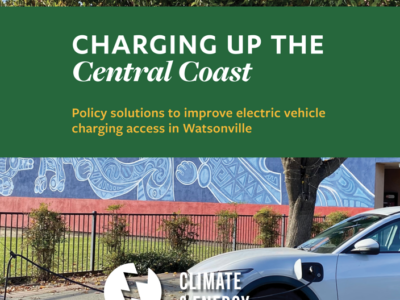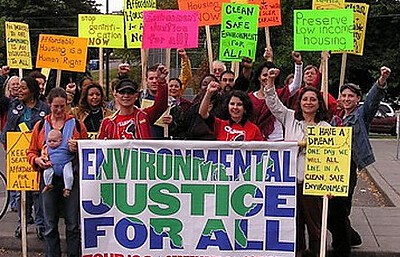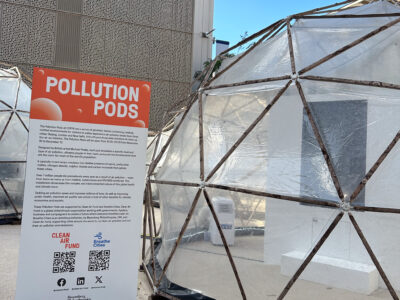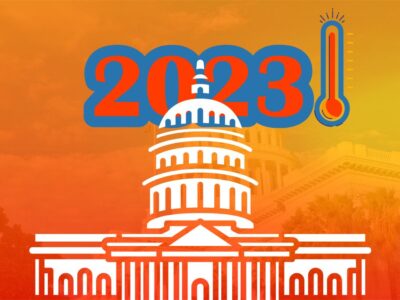Environmental Justice
7 Reasons California Should Get Tougher on Methane from Dairies
California lawmakers should rethink the role of dairy digesters in the state’s dairy and livestock mitigation strategy.
Even though California aims to decrease the emissions of methane, dairy operations are rewarded for creating, and capturing, more and more of the planet-warming super pollutant in the form of manure-derived biogas. Today, California lawmakers declined to correct that perverse incentive, but they still have opportunities to rethink the state’s embrace of digesters as its …
Continue reading “7 Reasons California Should Get Tougher on Methane from Dairies”
CONTINUE READINGHow Can Cities Ensure EV Charging Accessibility for Lower-Income Drivers?
Watsonville, California as a Case Study for Policymakers
California’s ambitious goal to end the sale of internal combustion engine passenger vehicles by 2035 will require addressing the challenges faced by lower- and moderate-income drivers in accessing battery-powered electric vehicles (EVs). Chief among these concerns is their need to have a convenient and affordable place to charge the vehicles. Currently these residents too often …
Continue reading “How Can Cities Ensure EV Charging Accessibility for Lower-Income Drivers?”
CONTINUE READINGClimate Justice, Climate Finance and Pragmatism for Tropical Jurisdictions at COP28
Exploring the urgency of subnational climate action: insights from COP28 on financing tropical forest conservation, indigenous empowerment, and sustainable livelihoods by the Governors’ Climate and Forests Task Force network.
The Governors’ Climate and Forests Task Force (GCF Task Force) engaged in the 28th Conference of the Parties (COP28) to the United Nations Framework Convention on Climate Change (UNFCCC) held in Dubai, marking a pivotal moment in the global climate dialogue. This significant international forum serves as a crucial platform where nations, subnational entities, and …
CONTINUE READINGDr. King, Community, and Climate
Climate policy turns on an issue highlighted by Dr. King: Whose suffering counts?
“A genuine revolution of values means in the final analysis that our loyalties must become ecumenical rather than sectional. Every nation must now develop an overriding loyalty to mankind as a whole in order to preserve the best in their individual societies.” Those words are from a 1967 speech delivered at Riverside Church by Dr. …
Continue reading “Dr. King, Community, and Climate”
CONTINUE READINGSaving the Planet, One Case at a Time
These 50 law school clinics are doing vital work on environmental issues across the country.
Law school clinics are where the proverbial rubber meets the road. They introduce students to the realities of lawyering. Often, they are a law school’s most important form of public service. Environmental law clinics have blossomed across the country. Today’s post provides a directory to the clinics. There are several sites that promise comprehensive lists …
Continue reading “Saving the Planet, One Case at a Time”
CONTINUE READINGInequality Today: Unfinished Work
The first step in addressing the problem is to be clear about the facts.
More than a half century after Martin Luther King’s death, his work is still unfinished. Sadly, despite his efforts and those of many others, inequality remains a reality along multiple, interrelated dimensions: race, income, and geography. Inequality is not merely economic; it involves differences in health and life expectancy — and in exposure to pollution …
Continue reading “Inequality Today: Unfinished Work”
CONTINUE READINGCentering Public Health at the UN Climate Talks
Guest Contributor Meleana Chun-Moy reflects on COP28 and the growing recognition of the intersection between the climate crisis and human health.
The climate crisis is a public health crisis, and it finally seems global leaders have recognized that fact. With the backdrop of the first-ever Health Day at the annual UN climate conference, air quality in Dubai soared, as PM2.5 pollution reached 155 micrograms per cubic unit. The World Health Organization states the annual average concentrations …
Continue reading “Centering Public Health at the UN Climate Talks”
CONTINUE READINGA Big Year on Legal Planet
Here are the 12 most popular topics in environmental law and climate policy on Legal Planet based on our most-read posts from 2023.
It’s an understatement to say that 2023 was a transformative year for the U.S. climate movement. We saw rapid implementation of landmark federal climate laws, a series of big actions on methane emissions, a deal on Colorado River water usage, and bigger-than-expected climate victories in Sacramento. EPA’s control of toxic chemicals was tested, the U.S. …
Continue reading “A Big Year on Legal Planet”
CONTINUE READINGThe Year in California Climate Laws
Looking back at California’s 2023 legislative session, our new environmental laws represent a solid step forward—bigger than expected.
If 2022 was a Rivian with all the bells and whistles, this past year was more a Ford Lightning. After a landmark 2022—a record $54 billion committed to climate spending and legislation that codified the state’s goals of carbon neutrality by 2045 and 90 percent clean electricity by 2035—a significantly gloomier budget forecast gave rise …
Continue reading “The Year in California Climate Laws”
CONTINUE READINGA $1 Billion Investment in the ‘New Forest Economy’
A global group of governors just issued a call-to-action for more flexible funding for forest protection. Here’s why that’s important.
On December 5, as the 28th Conference of the Parties (COP28) to the United Nations Framework Convention on Climate Change continues full swing in Dubai, Governors, Indigenous Peoples, and other partners of the Governors’ Climate and Forests Task Force (GCF Task Force), launched an urgent call-to-action to finance what they are calling the “New Forest …
Continue reading “A $1 Billion Investment in the ‘New Forest Economy’”
CONTINUE READING



